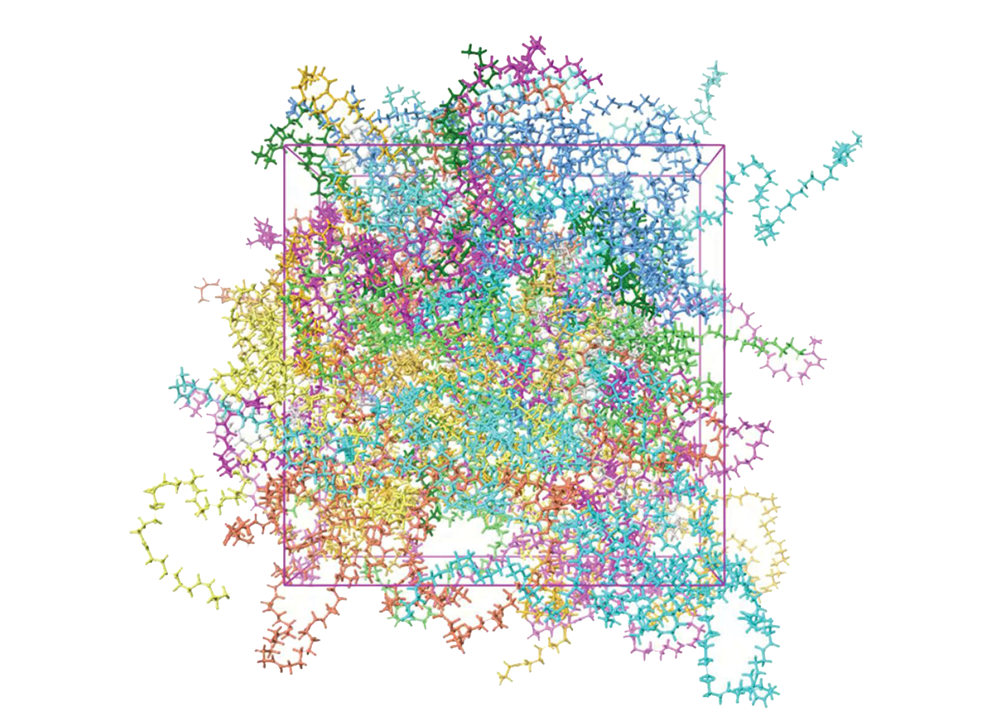MS Transport
Efficient molecular dynamics (MD) simulation tool for predicting liquid viscosity and diffusions of atoms and molecules

Efficient molecular dynamics (MD) simulation tool for predicting liquid viscosity and diffusions of atoms and molecules

MS Transport provides access to molecular dynamics (MD) simulation workflows for calculating shear viscosity and the isotropic and anisotropic diffusion coefficients for a particular type of atom or molecule. From the diffusion of Li+ ions in battery polymers to the viscosity of solvents, the equilibrium MD based workflows in MS Transport provide valuable insight into the performance of materials.


Scientists from Evonik and Schrödinger gain a deeper understanding of the impact of additives and macrocyclic structures on trans-polyoctenamer rubber (TOR).
read the case studyGet more from your ideas by harnessing the power of large-scale chemical exploration and accurate in silico molecular prediction.
Get answers to common questions and learn best practices for using Schrödinger’s software.

Learn more about the related computational technologies available to progress your research projects.
High-performance molecular dynamics (MD) engine providing high scalability, throughput, and scientific accuracy
A modern, comprehensive force field for accurate molecular simulations
Efficient coarse-grained (CG) molecular dynamics (MD) simulations for large systems over long time scales
Molecular dynamics (MD) modeling for predicting water loading and small molecule gas adsorption capacity of a condensed system
Efficient tool for optimizing custom torsion parameters in OPLS4
Browse the list of peer-reviewed publications using Schrödinger technology in related application areas.
Level up your skill set with hands-on, online molecular modeling courses. These self-paced courses cover a range of scientific topics and include access to Schrödinger software and support.
Learn how to deploy the technology and best practices of Schrödinger software for your project success. Find training resources, tutorials, quick start guides, videos, and more.